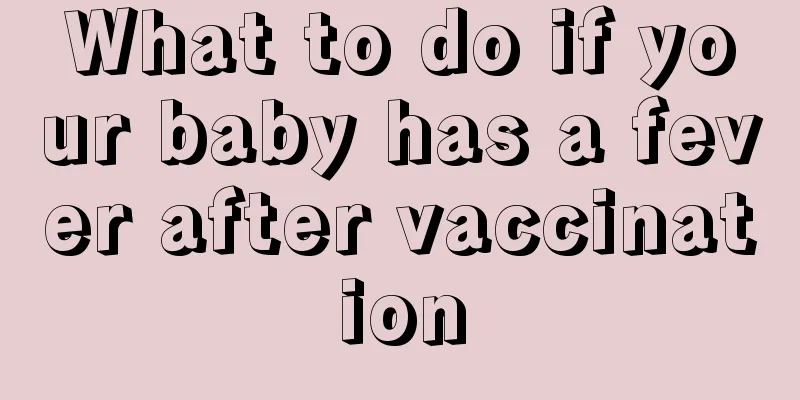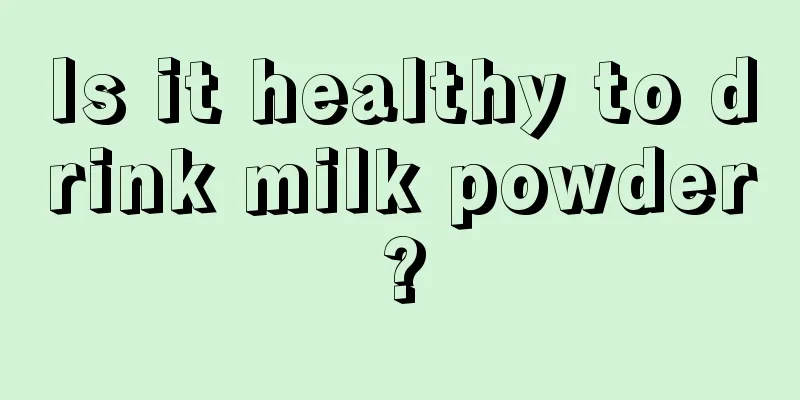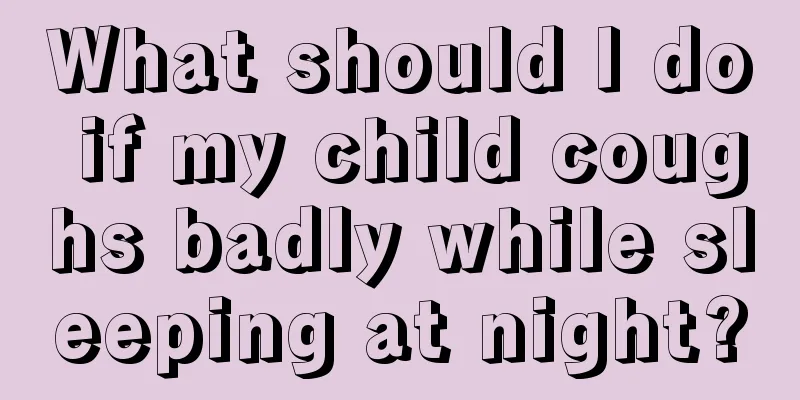What to do if your baby has a fever after vaccination

|
Babies are the treasures of their parents. Any problems that arise with the babies will be magnified by their parents. I believe many people know that when babies are young, they are prone to certain diseases due to immunity problems. At this time, many babies will get vaccinated, mainly to prevent the occurrence of certain diseases. Many times, babies will not show any reaction after receiving the vaccine, because the vaccine does not cause too much harm to people and mainly plays a preventive role. However, some babies develop fever after vaccination. So what should we do when such a situation occurs? 1 Let your baby drink more boiled water and get more rest. After the vaccination, provide your baby with enough warm boiled water and drink it regularly. Also, don't play with your baby as usual, as this will make your baby tired and reduce his body resistance. Be sure to keep the environment quiet and let your baby rest more to restore normal body temperature. 2 In winter, do not dress your baby too much after returning home from vaccination, which may cause the body temperature to rise. In the cold winter, parents like to dress their babies in very thick clothes. It is normal for the baby's body temperature to rise a little after vaccination. If the baby is dressed too much, the heat cannot be dissipated in time, which will cause the body temperature to rise too quickly. Therefore, parents should pay attention to maintaining a comfortable constant indoor temperature, and the baby's clothes can be reduced appropriately to restore the body temperature to a normal range. 3 When getting vaccinated in the hot summer, parents should pay attention to cooling down the baby. In the hot summer, the baby's body temperature will be higher than usual, and after vaccination, there will be some fever reaction. Therefore, parents should pay attention to cooling down the baby in time. They can wipe the baby's body with a wet towel and do not hold the baby all the time so that the baby's body temperature can return to normal. 4. Pay attention to providing your baby with light-tasting food. If the baby's temperature rises after vaccination, parents should provide light meals. For example, delicious lean meat porridge, sweet and sour pear juice, apple juice and so on. It can not only supplement the baby's nutrition, but also have the effect of lowering body temperature. 5 Observe for two days first, and don’t rush to take antipyretic drugs or get antipyretic injections. It is normal for babies to have a higher temperature and be in a bad mood after receiving vaccination. Measure your baby's temperature regularly and carefully every day. If the baby's temperature remains below 38.5 degrees, don't panic too much. Let the baby rest more first, and don't rush to give antipyretic drugs or antipyretic injections. 6 Parents should not treat their babies at will, but take them to the hospital for a comprehensive examination. If your baby has a fever after vaccination, and the measured temperature is always above 38.5 degrees, do not delay or treat the baby at will. Take the baby to the hospital immediately for a comprehensive examination. Find out what causes the baby's fever. Causes of fever may include intolerance to vaccines or virus infection, etc. Only by finding the real cause of the fever can we prescribe the right medicine to restore our baby to health. |
<<: What to do if swelling occurs after vaccination
>>: Crying after receiving polio vaccine
Recommend
Treatment of baby stye
Friends who have children at home will definitely...
77-day baby development standard
In fact, the development of babies at 77 days old...
Why is the child breathing heavily?
Children's heavy breathing often attracts the...
Is it useful to drink millet soup for babies with constipation? How to treat constipation in children?
Babies are in the early stages of development, an...
What are the clinical manifestations of ADHD in children?
Attention Deficit Hyperactivity Disorder (ADHD) i...
How to disinfect and care for the navel of a newborn
The fetus is in the mother's womb, connected ...
What are the white spots on the nails of children?
It is very common to see white spots on children&...
White sediment in children's urine
If there is white sediment in the child's uri...
When do babies develop a sense of taste?
When a baby is just born, his body is very soft a...
What to do if your child's face is dry and peeling
Many children often have fragile skin, wrinkles, ...
Is it good to bathe a newborn baby every day?
It is not good to bathe newborns every day. There...
Why do children have bad breath?
If children have bad breath, it is mostly related...
What should I do if my newborn baby has a bad stomach?
We all know that the gastrointestinal digestion a...
What does hemolysis mean in children?
Hemolytic disease in a child refers to the incomp...
Causes of children's coughing and vomiting
Coughing in children is a relatively common disea...









